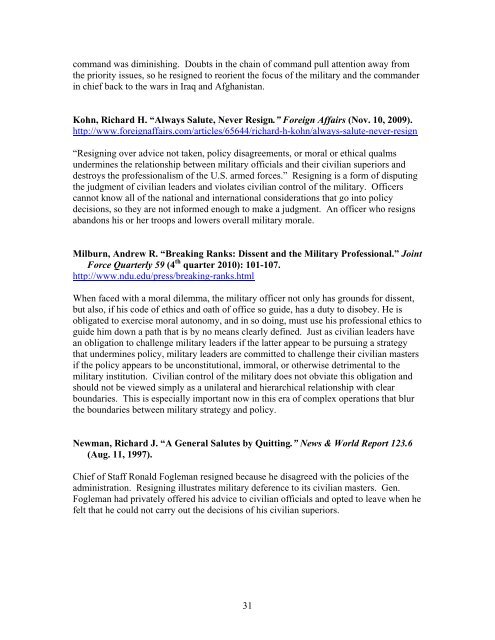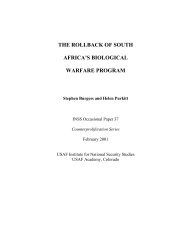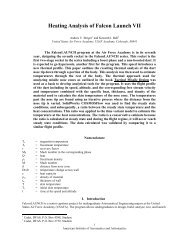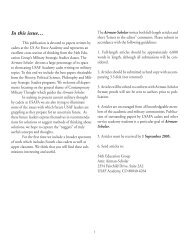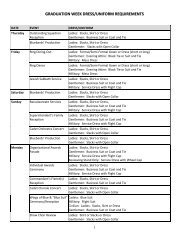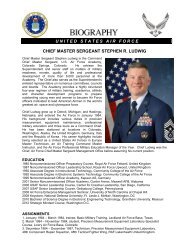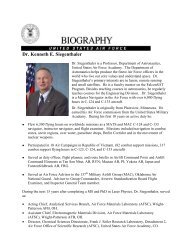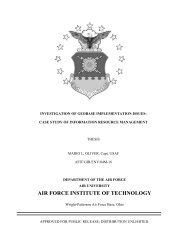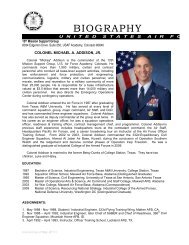Military Professionalism - United States Air Force Academy
Military Professionalism - United States Air Force Academy
Military Professionalism - United States Air Force Academy
Create successful ePaper yourself
Turn your PDF publications into a flip-book with our unique Google optimized e-Paper software.
command was diminishing. Doubts in the chain of command pull attention away from<br />
the priority issues, so he resigned to reorient the focus of the military and the commander<br />
in chief back to the wars in Iraq and Afghanistan.<br />
Kohn, Richard H. “Always Salute, Never Resign.” Foreign Affairs (Nov. 10, 2009).<br />
http://www.foreignaffairs.com/articles/65644/richard-h-kohn/always-salute-never-resign<br />
“Resigning over advice not taken, policy disagreements, or moral or ethical qualms<br />
undermines the relationship between military officials and their civilian superiors and<br />
destroys the professionalism of the U.S. armed forces.” Resigning is a form of disputing<br />
the judgment of civilian leaders and violates civilian control of the military. Officers<br />
cannot know all of the national and international considerations that go into policy<br />
decisions, so they are not informed enough to make a judgment. An officer who resigns<br />
abandons his or her troops and lowers overall military morale.<br />
Milburn, Andrew R. “Breaking Ranks: Dissent and the <strong>Military</strong> Professional.” Joint<br />
<strong>Force</strong> Quarterly 59 (4 th quarter 2010): 101-107.<br />
http://www.ndu.edu/press/breaking-ranks.html<br />
When faced with a moral dilemma, the military officer not only has grounds for dissent,<br />
but also, if his code of ethics and oath of office so guide, has a duty to disobey. He is<br />
obligated to exercise moral autonomy, and in so doing, must use his professional ethics to<br />
guide him down a path that is by no means clearly defined. Just as civilian leaders have<br />
an obligation to challenge military leaders if the latter appear to be pursuing a strategy<br />
that undermines policy, military leaders are committed to challenge their civilian masters<br />
if the policy appears to be unconstitutional, immoral, or otherwise detrimental to the<br />
military institution. Civilian control of the military does not obviate this obligation and<br />
should not be viewed simply as a unilateral and hierarchical relationship with clear<br />
boundaries. This is especially important now in this era of complex operations that blur<br />
the boundaries between military strategy and policy.<br />
Newman, Richard J. “A General Salutes by Quitting.” News & World Report 123.6<br />
(Aug. 11, 1997).<br />
Chief of Staff Ronald Fogleman resigned because he disagreed with the policies of the<br />
administration. Resigning illustrates military deference to its civilian masters. Gen.<br />
Fogleman had privately offered his advice to civilian officials and opted to leave when he<br />
felt that he could not carry out the decisions of his civilian superiors.<br />
31


